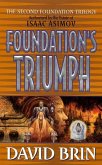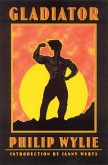In the world's upper hemisphere, only one small group has survived World War III: fourteen people, sheltered deep within a limestone mountain in Connecticut and with enough supplies and equipment to maintain their subsistence for upwards of two years. The group includes a forward-thinking millionaire and his family, a levelheaded Jewish scientist, a playboy, an aging African American servant and his daughter, a gigolo and the glamorous woman who has been his mistress, a beautiful Chinese girl, a young meter reader, two children, and a Japanese engineer. Fully aware of the outcome of the war that had raged briefly above them, the survivors seethe with hatred, fall into depression over their losses, rise to moments of superhuman bravery, and lapse into behavior that reflects their human weaknesses. Philip Wylie mercilessly predicts the inevitable end of a world that continues to function as selfishly and as barbarously as our own.
Hinweis: Dieser Artikel kann nur an eine deutsche Lieferadresse ausgeliefert werden.
Hinweis: Dieser Artikel kann nur an eine deutsche Lieferadresse ausgeliefert werden.








